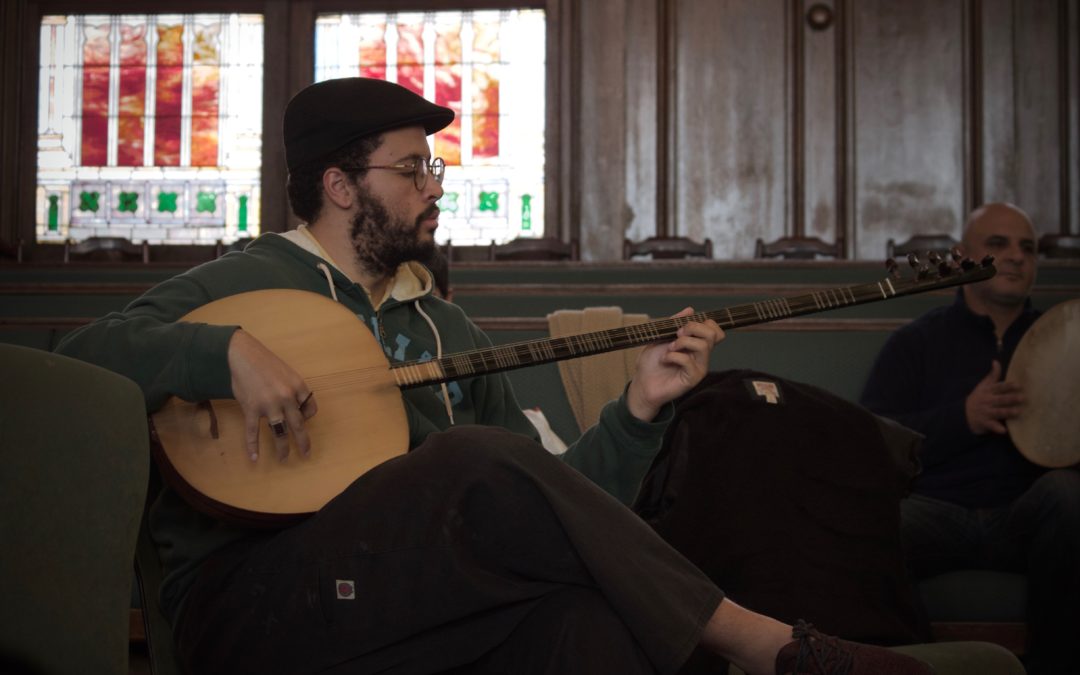Issa Golitzen Farajaje is collaborating with Zawaya to research and perform a concert of Sufi music from the Arab world — work that has been preserved in the Turkish Sufi tradition and by Turkish Sufi composers who were influenced by the Arab Sufi tradition. At the time of the Ottoman Empire, Sufis from across the Middle East and Europe were drawn to Istanbul, the Empire’s cultural and religious center, bringing the music orally transmitted to them through the centuries. Today this ancient treasure trove can be found in amateur recordings made in the 1960s and 1970s, manuscripts containing the lyrics of hundreds of songs, and sheet music written down by researchers in the 1940s and 50s. This project seeks to preserve and share a vanishing body of music known as shughuls. Project partners will travel to Turkey, research and prepare some 25-30 pieces, train members of Zawaya’s Aswat Ensemble to perform them, produce a concert of the music, and prepare a booklet containing the songs, notes, and translations.
Issa Golitzen-Farajajé, son of the late musician Professor Ibrahim Farajajé, has spent 10 years as a young adult moving between California and Turkey, studying the rich tradition of Turkish/Ottoman classical music. He co-directed the music program at the Dede Efendi House for Culture and the Arts in Istanbul, is a founding member of the Tanburi Cemil Bey Association, and is active in Bay Area Sufi circles. He is working closely on research for this project with Nabila Mango, executive director of Zawaya and a specialist in Middle Eastern manuscripts.
Zawaya works to preserve, produce, and promote Arabic arts in San Mateo and the greater Bay Area. Among its programs, the multi-racial, multi-ethnic Aswat Ensemble performs contemporary, classical, and folk songs of the Arab world.

